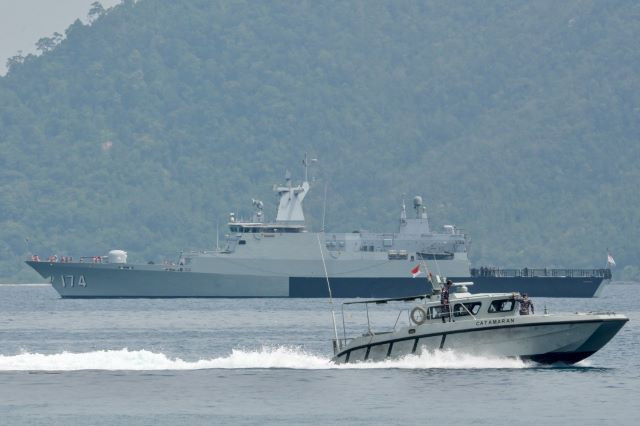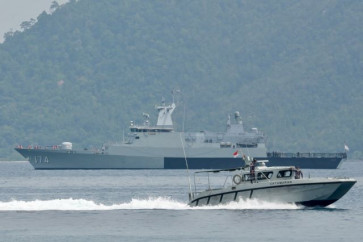Popular Reads
Top Results
Can't find what you're looking for?
View all search resultsPopular Reads
Top Results
Can't find what you're looking for?
View all search resultsManaging power conflict spillover in Straits of Malacca and Singapore
Engaging the major powers individually or under the auspices of the ADMM-Plus works well during peacetime, but may not provide sufficient leverage during conflict.
Change text size
Gift Premium Articles
to Anyone
A
SEAN defense leaders will be meeting in Jakarta next week for the 17th ASEAN Defense Ministers’ Meeting (ADMM). The United States-China rivalry and South China Sea tensions, as well as their impacts on ASEAN centrality and relevance are set to loom over the meeting.
The defense leaders are likely to refrain from discussing in detail contentious issues such as the South China Sea tensions and the impact of a Taiwan contingency on Southeast Asia, given the ASEAN member states’ respective one-China policy and preference to avoid offending Beijing. Perhaps an unspoken concern among them is that a collective position on these issues could inevitably depict ASEAN as choosing a side, hence risking their national interests.
While ASEAN member states have strategic reasons not to choose sides in the US-China rivalry, it is judicious to acknowledge that neutrality may not protect them from the fallout of military conflict in the Taiwan Strait or South China Sea. The elephant in the room is the possible spillover of such conflict to the Straits of Malacca and Singapore (SOMS). In particular, the security of the SOMS is crucial to the territorial integrity and economic survival of the three littoral states of Indonesia, Malaysia and Singapore.
Even if ASEAN cannot reach a consensus on the South China Sea and Taiwan contingency, there is a necessity for these littoral states to engage in contingency planning, either individually or in a trilateral manner, to future-proof the freedom of movement and security of the SOMS.
The seas, particularly the SOMS, are life-givers to the three littoral states. More than 130,000 vessels call at Singapore annually. Approximately 90 percent of Malaysia’s trade is transported via the sea. Among the 1,700 ports in archipelagic Indonesia, the port of Belawan in Medan, which faces the Strait of Malacca, is the busiest facility outside Java.
To the major powers, the importance of the SOMS to global trade networks features in their strategic calculus. For the US, the SOMS are vital for its military forces to move reinforcements and supplies across the region.
More than 70 percent of China’s petroleum and liquefied natural gas (LNG) supplies are shipped through the SOMS, with 60 percent of its trade traversing between the waterways and the South China Sea.



















